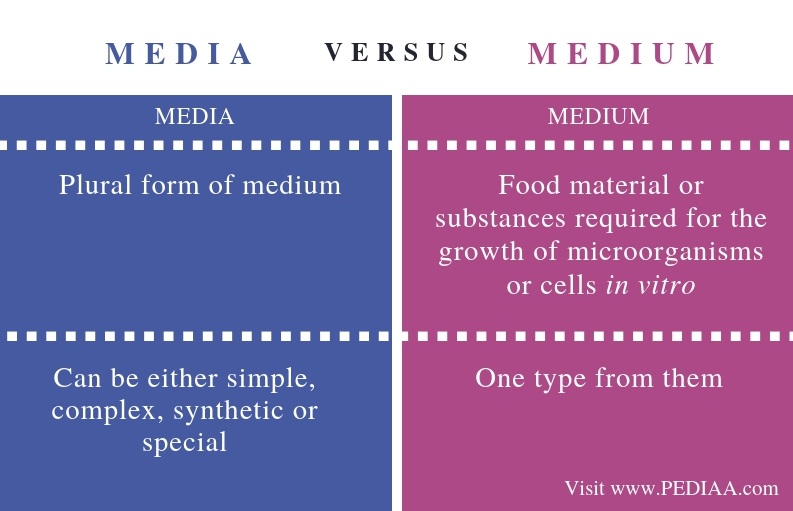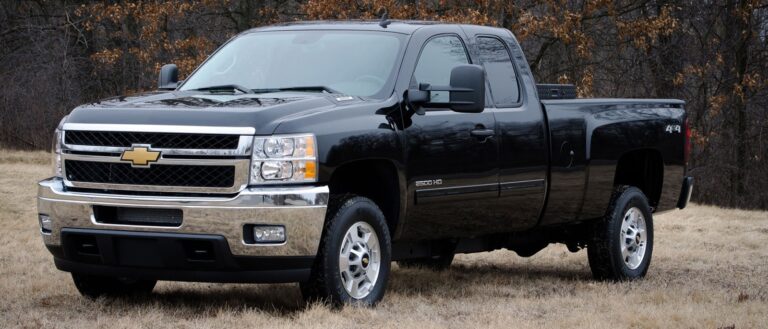Medium Trucks For Sale Near Me: Your Comprehensive Guide to Finding the Perfect Workhorse
Medium Trucks For Sale Near Me: Your Comprehensive Guide to Finding the Perfect Workhorse cars.truckstrend.com
In the intricate tapestry of modern commerce and logistics, medium-duty trucks serve as the indispensable backbone, bridging the gap between smaller delivery vans and colossal heavy-haulers. From local distribution to specialized services, these versatile vehicles empower businesses and individuals to transport goods, equipment, and materials efficiently and economically. If you’ve found yourself searching for "medium trucks for sale near me," you’re embarking on a journey to acquire a critical asset that can significantly impact your operational capabilities and bottom line. This comprehensive guide will navigate you through every facet of understanding, finding, and purchasing the ideal medium truck to meet your specific needs.
What Defines a Medium Truck? Understanding the Classification
Medium Trucks For Sale Near Me: Your Comprehensive Guide to Finding the Perfect Workhorse
Before diving into the market, it’s crucial to understand what constitutes a "medium truck." In the United States, trucks are categorized by their Gross Vehicle Weight Rating (GVWR), which is the maximum operating weight of a vehicle as specified by the manufacturer, including the vehicle’s chassis, body, engine, fluids, fuel, accessories, driver, passengers, and cargo.
Medium trucks typically fall into Classes 4 through 7:
- Class 4: 14,001 – 16,000 lbs (e.g., larger pick-up trucks with dual rear wheels, some box trucks)
- Class 5: 16,001 – 19,500 lbs (e.g., larger walk-in delivery trucks, smaller flatbeds)
- Class 6: 19,501 – 26,000 lbs (e.g., common for many box trucks, refuse trucks, utility vehicles)
- Class 7: 26,001 – 33,000 lbs (e.g., heavier dump trucks, city buses, larger refuse trucks)

The importance of this classification extends beyond mere weight; it dictates licensing requirements (some Class 7 trucks may require a Commercial Driver’s License or CDL), registration, insurance, and the types of jobs the truck is legally and practically capable of performing. Understanding your required GVWR is the first step in narrowing down your search.
Why Choose a Medium Truck? Benefits and Versatility
Medium trucks offer a compelling blend of capabilities that make them a preferred choice for a wide array of applications:
- Optimal Payload Capacity: They strike a perfect balance, offering significantly more payload capacity than light-duty trucks without the bulk, expense, and specialized licensing often associated with heavy-duty vehicles. This makes them ideal for carrying substantial loads like appliances, furniture, construction materials, or large volumes of parcels.
- Maneuverability in Urban Environments: While robust, many medium trucks are designed with city and suburban driving in mind. Their turning radius and overall footprint are often more manageable than heavy trucks, allowing for easier navigation through congested streets, tight loading docks, and residential areas.
- Fuel Efficiency (Relative to Capacity): Compared to their heavy-duty counterparts, medium trucks generally offer better fuel economy for the amount of cargo they can carry, leading to lower operating costs over time.
- Versatility and Customization: The chassis of a medium truck can be fitted with a multitude of body types, making them highly adaptable to various industries and tasks. This modularity is a significant advantage.
- Durability and Longevity: Built for consistent commercial use, medium trucks are designed with robust components and powertrains, ensuring a long operational life with proper maintenance.

Types of Medium Trucks You’ll Find For Sale
The "medium truck" category is incredibly diverse, with different body configurations tailored for specific tasks. When searching "medium trucks for sale near me," you’ll encounter several common types:
- Box Trucks (Straight Trucks/Cube Vans): The most common type, featuring an enclosed rectangular cargo area directly attached to the chassis. Ideal for moving, delivery services, and general freight. Sizes vary widely.
- Flatbed Trucks: Characterized by a flat, open bed with no sides or roof. Perfect for transporting oversized, oddly shaped, or palletized goods that need to be loaded from the top or sides, such as construction materials, machinery, or agricultural products.
- Dump Trucks: Equipped with an open-box bed that is hinged at the rear and lifted by hydraulic rams to dump its contents (sand, gravel, dirt, demolition waste). Essential for construction, landscaping, and excavation.
- Refrigerated Trucks (Reefers): Box trucks fitted with a refrigeration unit to maintain a controlled temperature for perishable goods like food, pharmaceuticals, or flowers.
- Utility/Service Trucks: Often featuring specialized compartments, shelving, and sometimes cranes or aerial lifts. Used by plumbers, electricians, telecom companies, and other field service professionals.
- Stake Body Trucks: Similar to flatbeds but with removable stakes or panels around the perimeter of the bed, offering a balance between open-air transport and cargo containment.
- Cab & Chassis: This is essentially a truck without a body, allowing the buyer to customize it with a specific body type (e.g., a custom service body, a specific type of refuse compactor, or a specialized drilling rig).
The Search: How to Find Medium Trucks For Sale Near You
Finding the right medium truck involves a strategic approach leveraging various resources:
-
Online Marketplaces:
- Commercial Truck-Specific Sites: Websites like TruckPaper.com, CommercialTruckTrader.com, and MyLittleSalesman.com are dedicated platforms for commercial vehicles. They offer extensive filtering options by location, make, model, year, GVWR, and body type.
- General Classifieds: While less specialized, sites like eBay Motors, Facebook Marketplace, and even Craigslist can list local trucks, often from private sellers. Be more cautious here and prioritize in-person inspections.
- Manufacturer Certified Pre-Owned: Many major truck manufacturers (e.g., Ford, Freightliner, Isuzu, Hino, Kenworth, Peterbilt, Ram) have certified pre-owned programs on their websites, offering inspected and warrantied used trucks.
-
Local Dealerships:
- Franchised Commercial Truck Dealerships: These dealers specialize in new and used medium-duty trucks from specific manufacturers. They often have a wide inventory, offer financing, and provide service and parts support. Searching "[Manufacturer Name] Commercial Truck Dealer Near Me" is a good starting point.
- Used Commercial Truck Dealers: Independent dealerships that focus solely on used commercial vehicles. They can offer a broader range of makes and models, sometimes at more competitive prices.
-
Auctions:
- Public Auctions: Government surplus auctions, fleet liquidations, and police auctions can be sources for good deals, but they require quick decision-making and often don’t allow for thorough pre-inspection.
- Online Auction Platforms: Ritchie Bros. Auctioneers, IronPlanet, and GovDeals often feature medium trucks.
-
Networking and Referrals:
- Talk to other business owners in your industry. They might know of trucks for sale or have recommendations for reliable sellers.
- Check local business listings, particularly for equipment rental companies or large fleets that frequently cycle their vehicles.
Actionable Insight: When using online search, be specific with your keywords. Instead of just "medium trucks," try "box truck for sale near me," "Class 6 flatbed truck," or "Isuzu NPR for sale [Your City/State]." Utilize the "location" filters extensively to narrow down results to your immediate vicinity.
Key Considerations Before You Buy
Purchasing a medium truck is a significant investment. Thorough due diligence is paramount.
-
Budget & Financing:
- Purchase Price: This is just the beginning.
- Financing: Explore options like traditional bank loans, dealer financing, or specialized commercial vehicle lenders. Understand interest rates, terms, and down payment requirements.
- Operating Costs: Factor in fuel, insurance (commercial insurance is often higher), maintenance (parts and labor are more expensive than passenger vehicles), tires, registration, and potential tolls.
- New vs. Used: New trucks offer warranties, the latest technology, and customization, but come at a higher price. Used trucks offer cost savings but require more scrutiny regarding their condition and history.
-
Intended Use & Specifications:
- Payload Capacity: Crucial. Don’t underestimate your needs. Overloading a truck can be dangerous, illegal, and lead to premature wear.
- Cargo Volume/Dimensions: Ensure the body size is adequate for your typical loads.
- Engine & Transmission: Consider diesel for heavy, frequent hauling and better fuel economy (though initial cost is higher). Gasoline engines are often cheaper, quieter, and sufficient for lighter, intermittent use. Automatic transmissions are common for ease of driving, while manuals offer more control and potentially better fuel economy for experienced drivers.
- GVWR & CDL Requirements: Reconfirm the GVWR to ensure you or your drivers have the appropriate license. In the U.S., a CDL is generally required for vehicles over 26,000 lbs GVWR.
- Special Features: Do you need a liftgate, ramp, specific tie-downs, climate control, or a PTO (Power Take-Off) for auxiliary equipment?
-
Condition (for Used Trucks):
- Maintenance Records: Request detailed service history. A well-maintained truck is a better investment.
- Professional Inspection: Absolutely critical. Hire a qualified, independent mechanic specializing in commercial vehicles to perform a pre-purchase inspection. They can identify hidden issues with the engine, transmission, brakes, suspension, frame, and body.
- Test Drive: Drive the truck under various conditions – empty and, if possible, with a simulated load. Listen for unusual noises, check braking, steering, and transmission shifting. Test all lights, wipers, HVAC, and power accessories.
- Rust & Frame Damage: Inspect the undercarriage for excessive rust, especially on the frame rails. Look for any signs of welding or repairs that might indicate previous accidents or structural damage.
- Tires & Brakes: Check tire tread depth and even wear. Inspect brake pads, rotors, and air lines (if applicable).
The Buying Process: Step-by-Step
- Define Your Needs & Budget: Be clear about the truck type, capacity, features, and your financial limits.
- Research & Shortlist: Use online platforms and dealership websites to identify potential trucks that match your criteria.
- Contact Sellers: Ask detailed questions about the truck’s history, maintenance, mileage, and any known issues.
- In-Person Inspection & Test Drive: Schedule appointments. Don’t skip this. Bring your mechanic if possible.
- Professional Pre-Purchase Inspection: Once you’ve found a strong candidate, invest in a professional inspection.
- Negotiation: Armed with your inspection report and market research, negotiate the price. Don’t be afraid to walk away if the deal isn’t right.
- Financing & Insurance: Secure your financing pre-approval. Obtain insurance quotes.
- Paperwork & Transfer: Ensure all titles, registrations, and sales agreements are correctly completed. Verify VIN numbers match all documents.
Maintenance and Ownership Tips
- Follow Manufacturer’s Schedule: Adhere strictly to the recommended service intervals for oil changes, fluid checks, filter replacements, and preventative maintenance.
- Daily Pre-Trip Inspections: For commercial operations, DOT regulations often require daily pre-trip inspections. Even for personal use, a quick check of tires, lights, fluid levels, and brakes can prevent costly breakdowns.
- Tire Care: Proper inflation and regular rotation are crucial for tire longevity and fuel efficiency.
- Find a Reputable Mechanic: Establish a relationship with a mechanic or service center specializing in commercial trucks.
- Keep Records: Maintain meticulous records of all maintenance, repairs, and fuel purchases for budgeting, warranty claims, and potential resale.
Medium Truck Estimated Price Table (For Reference Only)
Prices for medium trucks vary significantly based on make, model, year, mileage, condition, features, and location. This table provides estimated ranges for common types. Always research specific vehicles thoroughly.
| Truck Type | GVWR Range (Classes) | Typical Used Price Range (USD) | Typical New Price Range (USD) | Common Applications |
|---|---|---|---|---|
| Box Truck | Class 4-7 | $15,000 – $70,000+ | $50,000 – $120,000+ | Local delivery, moving, freight, expedited shipping |
| Flatbed Truck | Class 5-7 | $20,000 – $80,000+ | $60,000 – $130,000+ | Construction materials, equipment transport, oversized loads |
| Dump Truck | Class 6-7 | $25,000 – $90,000+ | $80,000 – $180,000+ | Construction, landscaping, aggregate transport |
| Refrigerated Truck | Class 4-7 | $30,000 – $100,000+ | $70,000 – $160,000+ | Food delivery, pharmaceuticals, floral transport |
| Utility/Service Truck | Class 4-6 | $20,000 – $80,000+ | $65,000 – $140,000+ | Field service, telecom, electrical, plumbing |
| Cab & Chassis | Class 4-7 | $10,000 – $50,000+ | $40,000 – $90,000+ | Custom body builds (e.g., specific service bodies, specialized equipment) |
Note: "Near Me" will influence pricing due to local market demand, availability, and transport costs. Prices can fluctuate significantly based on current economic conditions, fuel prices, and vehicle availability.
Frequently Asked Questions (FAQ) About Medium Trucks
Q1: Do I need a CDL to drive a medium truck?
A1: It depends on the truck’s Gross Vehicle Weight Rating (GVWR). In the U.S., a CDL (Commercial Driver’s License) is generally required for any single vehicle with a GVWR of 26,001 pounds or more, or if you are towing a trailer with a GVWR of 10,001 pounds or more and the Gross Combination Weight Rating (GCWR) is 26,001 pounds or more. Most Class 4-6 trucks do not require a CDL, but many Class 7 trucks will. Always check your specific state’s regulations and the truck’s GVWR.
Q2: What’s the typical lifespan of a medium truck?
A2: With proper maintenance, medium trucks are built to last. Many can easily exceed 300,000 to 500,000 miles, and some diesel engines can go much further, reaching 700,000+ miles. The lifespan heavily depends on how it was used, maintained, and the type of work it performed.
Q3: Should I buy a new or used medium truck?
A3: This depends on your budget, immediate needs, and risk tolerance. New trucks offer warranties, the latest technology, and full customization, but come at a premium. Used trucks are more budget-friendly and depreciate slower after the initial drop, but require more thorough inspection and may not have the exact features you desire. For many small to medium businesses, a well-maintained used truck offers excellent value.
Q4: What’s GVWR, and why is it important?
A4: GVWR stands for Gross Vehicle Weight Rating. It’s the maximum operating weight of a vehicle, including its chassis, body, engine, fluids, driver, passengers, and cargo, as specified by the manufacturer. It’s crucial because it determines the legal payload capacity, affects licensing requirements (CDL vs. non-CDL), and influences insurance rates. Exceeding the GVWR is unsafe, illegal, and can void warranties or lead to significant mechanical issues.
Q5: What are common maintenance costs for medium trucks?
A5: Maintenance costs vary, but typically include:
- Oil Changes: More frequent and use more oil than passenger cars.
- Tires: Larger, more expensive, and wear faster under heavy loads.
- Brakes: Components are robust but can be costly to replace.
- Filters: Air, fuel, oil filters are critical for engine health.
- Fluids: Transmission fluid, coolant, differential fluid, etc.
- Preventative Maintenance: Regular inspections to catch issues before they become major problems.
- Expect to budget anywhere from $0.15 to $0.30 per mile for maintenance and repairs, though this can fluctuate significantly.
Conclusion
The search for "medium trucks for sale near me" is an exciting venture into acquiring a powerful tool for your business or personal needs. By understanding the classifications, exploring the diverse types available, leveraging smart search strategies, and conducting thorough due diligence, you can confidently navigate the market. Remember that a medium truck is more than just a vehicle; it’s a vital asset that, with careful selection and diligent maintenance, will serve you reliably for years to come, driving efficiency and profitability wherever your work takes you. Invest wisely, and your medium truck will undoubtedly prove its worth.






